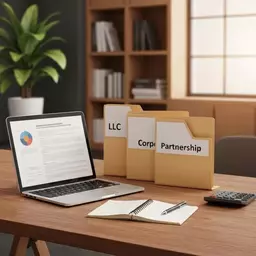4. Initiate Contact & Act
- ✓ Prepare case overview
- ✓ Request consultations
- ✓ Understand legal guidelines

Finding the right family lawyer can feel overwhelming, but it doesn’t have to be. By understanding your unique legal needs and leveraging the right resources, you can simplify your search and achieve a successful outcome. Ready to take charge of your legal journey?
Navigating family law involves a clear process, from identifying your specific needs to taking the final steps towards legal support. This visual guide highlights the key stages in finding the right legal representation.
When it comes to navigating the complexities of family law, understanding your specific needs is essential. Are you facing a divorce, child custody issues, or perhaps considering adoption? Each situation has its unique challenges and requires tailored legal expertise. By clearly identifying your needs, you can make informed decisions about your legal representation, ensuring that you find the right support.
As someone dedicated to empowering individuals in their legal journeys, I know the importance of clarifying your situation. A precise understanding of your legal needs can guide you in selecting an attorney who specializes in the relevant practice areas, making the process smoother and less overwhelming.
It's crucial to pinpoint the exact issues you are dealing with in family law. Here are some common issues you might encounter:
Once you've identified your situation, it becomes easier to find a legal professional equipped to handle your case. Remember, the more specific you can be about your issues, the better your legal representation will understand your needs!
Finding a lawyer who is familiar with your local laws and court systems can make a significant difference in your case. Local expertise means that your attorney is not only aware of the relevant legal standards but also understands how to navigate the local court’s preferences and practices. This insight can often lead to more favorable outcomes. For more information on the role of legal professionals, you can refer to resources like the U.S. Office of Personnel Management's guidelines on attorney positions.
Moreover, local lawyers tend to have established relationships with judges and other legal professionals, which can be an asset in your case. When searching for representation, consider those with a solid reputation in your area—this can provide you with an added layer of security as you proceed.
Family law encompasses a variety of critical practice areas. Here’s a closer look at a few of them:
Understanding these areas not only prepares you for discussions with potential lawyers but also clarifies what to expect throughout your legal journey. When you know what you’re looking for, the search for an attorney becomes much less daunting!
Once you have a clear understanding of your family law needs, the next step is to research potential family lawyers in your area. This part of the process is crucial to ensuring you find a legal representative who is well-suited to handle your unique family law issues.
Utilizing the right resources can help streamline your search and connect you with qualified attorneys who have the experience and specialization you need.
When evaluating potential family lawyers, consider scheduling an initial consultation with multiple attorneys. This allows you to assess their communication style, experience with cases similar to yours, and whether you feel comfortable discussing your personal issues. Remember, selecting a lawyer is not just about their qualifications; it's also about finding someone you can trust to advocate for your best interests!
The first steps involve identifying your specific family law needs (e.g., divorce, child custody, adoption) and then beginning your research for local lawyers who specialize in those areas.
Local expertise ensures your attorney is familiar with specific local laws, court procedures, and has established relationships within the local legal community, which can be beneficial for your case.
You can use online directories like E Lawyers Near Me, local bar associations, and legal aid organizations to find qualified legal representatives.
You should prepare a brief overview of your situation, specific questions about their experience and approach, and any relevant documents to discuss your legal needs effectively.
Common issues include divorce proceedings, child custody and support arrangements, adoption and guardianship processes, and handling domestic violence cases.
As you approach the end of your search for a family lawyer, it’s essential to consolidate the key steps you’ve taken. Finding the right legal representation is a significant decision, one that can greatly influence the outcome of your case. So, let’s recap the major steps to keep you on track!
Remember, this isn’t just about picking a name from a list. It’s about finding a legal partner who understands your situation and can guide you through the complexities of family law. Once you feel confident in your choices, you can move forward with peace of mind.
Even after you’ve shortlisted potential lawyers, it’s important to remain open to ongoing research and inquiries. The world of family law can be intricate, and asking the right questions can lead to better outcomes. Here are some suggestions on how to stay informed:
Staying proactive during this process will empower you to make informed choices. Don’t hesitate to ask questions that matter to you—after all, this is about your future!
Now that you’ve gathered valuable insights, it’s time to take action! Finding a family lawyer is not just about what you know—it’s about connecting with the right person who can help you through your situation.
Leveraging the right resources can streamline your search effectively. In addition to personal recommendations, consider the following:
Each of these resources can help you find qualified attorneys who fit your needs. Don’t forget to explore what’s available in your area!
Once you’ve identified a lawyer that seems like a good fit, reaching out should be your next step. Here’s how to go about it:
Being prepared will help you make a strong first impression and ensure you’re on the right track from the get-go!
Finally, familiarize yourself with the general family law guidelines relevant to your case. Knowing your rights and the legal landscape can empower you in your discussions with potential lawyers. For additional insights on improving access to justice, consider reviewing reports such as the Future of Justice Initiative's preliminary report on recommendations for access to justice. Resources such as law libraries or online legal portals can be incredibly helpful in this regard.
Being informed not only prepares you for consultations but also builds your confidence as you navigate this process. Remember, I’m here to help you find the legal support you deserve through E Lawyers Near Me. Let’s take the next step together!
Here is a quick recap of the important points discussed in the article:
Choosing Your Business Structure Guide

Choosing the right business structure is crucial for entrepreneurs embarking on their journey. The d
Preparing for Child Custody Cases

Are you feeling overwhelmed by the complexities of child custody cases? You're not alone. Many paren
Public Defender vs. Private Lawyer

As you venture into the complexities of the legal world, understanding your options is paramount. Wi
Choosing Your Business Structure Guide
Preparing for Child Custody Cases
Public Defender vs. Private Lawyer
Property Law Consultation Expectations
Understanding Immigration Lawyers' Roles